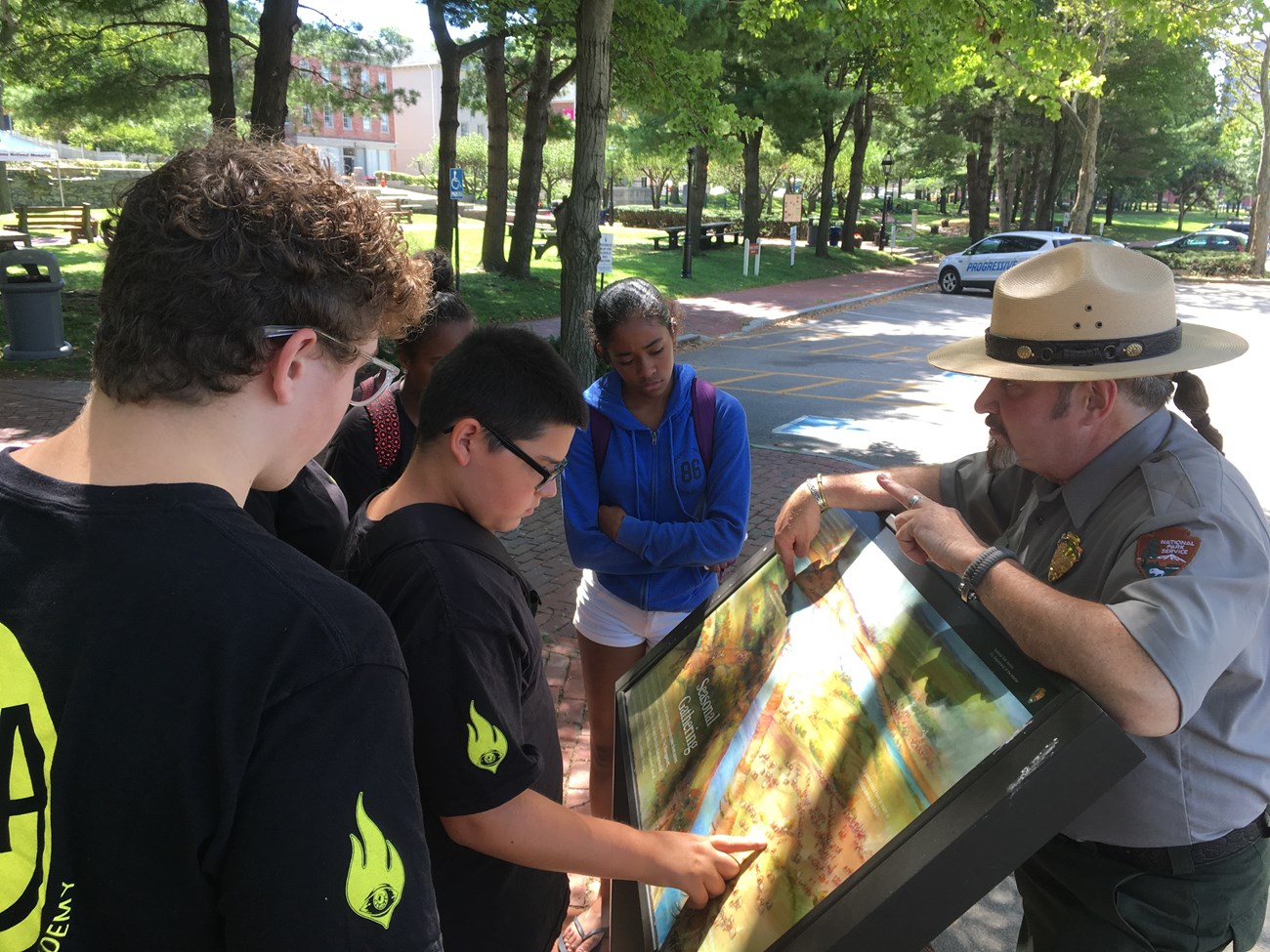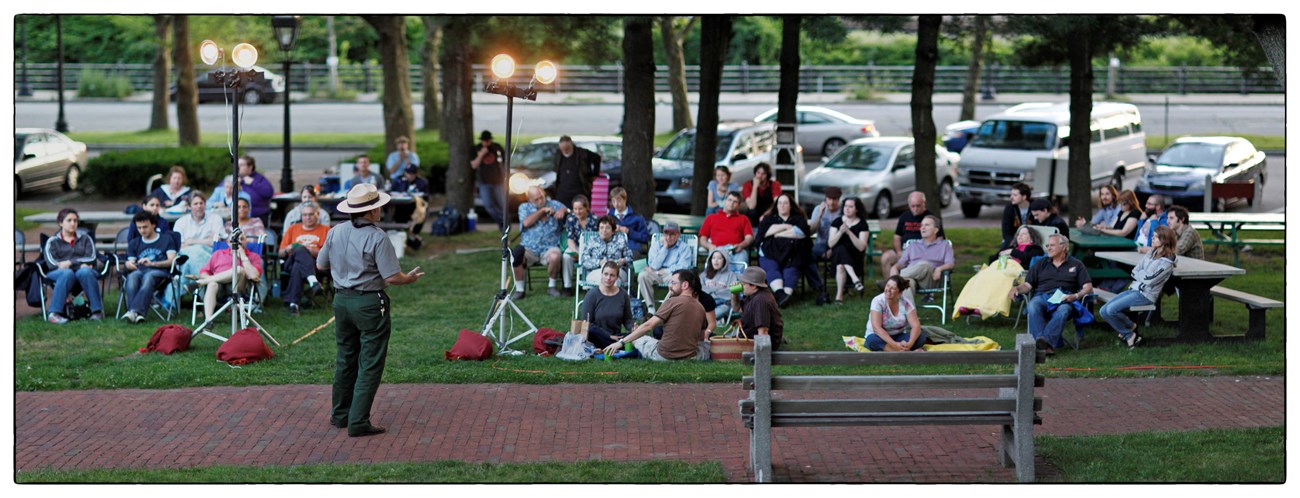Last updated: January 2, 2020
Article
National Park Getaway: Roger Williams National Memorial

NPS Photo
Soldiers were on the way. Roger Williams had a choice: stay and face deportation and certain death back in England, or flee into a frozen wilderness. Either way, he was going to have to leave his young wife and child behind. His crime? He had new and radical opinions.
Nearly four hundred years ago, the English preacher Roger Williams outraged many of his fellow New England colonists with opinions so different they nearly cost him his life.
The idea of real religious freedom didn’t start here, but this was the moment it was first put into practice in what is now the United States. Fortunately the idea stuck. Roger’s thoughts about civil equality, government by the people, and separation of church and state influenced the rights that Americans enjoy today.
Once a sanctuary for people persecuted for their beliefs, Roger Williams National Memorial is now an urban oasis established by Congress in 1965 to commemorate Williams’ outstanding contributions to the principles of freedom in this country. Located on a 4.5-acre site in downtown Providence, Rhode Island,, the memorial is centrally located and surrounded by history.

NPS Photo
Within a one-mile radius of the site, you can explore historic Providence, charting its growth from a small settlement to the third largest city in New England. Exploring the town will take you along famous Benefit Street in the College Hill area, where the early English settlement was located. Cross one of three rivers to explore 1800s Providence and then end your journey at the State House where you can see the Charter issued by King Charles II, which formalized Roger Williams’ “livlie experiment.”
The exhibits in the memorial’s visitor center are designed to make you stop and think. Unlike many historic sites, visitors are not immersed in the past. Here you are asked questions about yourself and your opinions on topics that stretch from Williams’ to today: race relationships, colonization, immigration, faith, and the very nature of freedom.
In Williams’ time, his opinions made him an outsider; a threat to those in power; yes, even a threat to the entire system. We continue to struggle with “new” and “radical” opinions today. New ideas will constantly rise to challenge long held traditions. They demand that we examine ourselves and debate their proper place in the world today.

NPS Photo
This memorial helps us see, hear, and touch the lives and struggles of early English colonists; learning a little more about ourselves and our society along the way.Hopefully, visitors can walk away inspired to learn more and do more in today’s world.
Roger Williams National Memorial winter hours are, 9 am to 5 pm, five days a week (Wed-Sun) January 1 through March 31. The rest of the year, April 1 through December 31, the memorial is open seven days a week from 9 am to 5 pm. Continue exploring New England history and scenery at nearby Blackstone River Valley National Historic Park and the John. H. Chafee Blackstone River Valley National Heritage Corridor.
